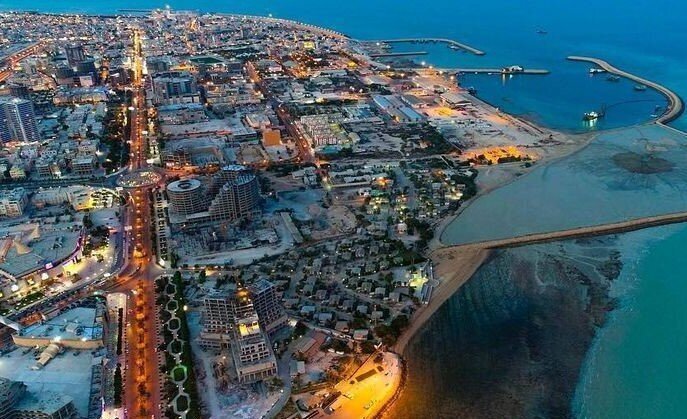New FTZs in need of budget to be developed

TEHRAN- Establishment of free trade zones (FTZs) in Iran dates back to Iranian calendar year 1368 (March 1989 - March 1990) following the fall in the country’s oil income in the preceding year which prompted the government to promote the non-oil exports.
The first two free trade zones of Iran were established in the south of country. The first one was Kish Free Trade Zone established in 1368 on Kish Island in the Persian Gulf and the second one was Qeshm Free Trade Zone established the year after on Qeshm Island in the Strait of Hormuz.
Some five other free trade zones have been also established in the country since then, including Chabahar in southeastern Sistan-Baluchestan Province, Arvand in southwestern Khuzestan Province, Anzali in northern Gilan Province, Aras in East-Azarbaijan Province and Maku in West-Azarbaijan Province, both in the northwest of the country.
Development of existing free trade zones and establishment of new FTZs has become one of the major economic approaches of Iranian government.
In May 2021, the Former President Hassan Rouhani announced the law on the establishment of seven free trade-industrial zones and 13 special economic zones for implementation to Secretariat of Iranian Free Zones High Council and Ministry of Finance and Economic Affairs.
This law is in line with the realization of paragraph 11 of the general policies of the resistance economy based on the development of the field of operation of the free and special economic zones of the country and for the purpose of transferring advanced technologies, expanding and facilitating production, exporting goods and services, meeting essential needs, and providing financial resources from abroad.
The related bill had been approved by the parliament in late May 2020, and ratified by the Expediency Council on late May 2021 to become a law on the establishment of new zones in Ilam, Sistan-Baluchestan, Kordestan, Bushehr, Ardebil, Golestan and Kermanshah provinces.
It should be noted that the new free zones have a critical need for government funding to be established and achieve their goals, something that has not been yet realized.
And, it should be also mentioned that the secretary of Iran’s Free Zones High Council, in last November, had referred to the establishment of new free zones as a big mistake.
“The creation of seven new free zones announced this year was a big mistake; Because the capacity of the current free zones has not yet been exploited and the desire to create free zones harms the country”, Saeed Mohammad complained at the time.
“79 free/special zone licenses have been issued in the country, of which 32 zones are active, but only two percent of the country's non-oil exports are from these zones, and production in them is one percent and investment making is seven percent”, he further explained.
“Our free zones are plagued with many problems, the first one is lack of infrastructure”, he said, adding, “After 39 years, Kish still has no electricity, we have 22,000 empty units in Kish, and if they live there, we will face a big electrical problem.”
Complaining about the lack of budget for the new zones, the official also said on Sunday, “We do not have any resources in this year's budget law for the development of new free zones, and we cannot legally use the resources of existing free zones.”
Refereeing to the activity of eight FTZs in the country and establishment of seven new ones which was approved last year, Mohammad said, “In the budget bill of 1401 (started on March 21), for the establishment of new free zones, we had made a request to allocate foreign currency through oil bartering, but this clause was deleted in the parliament’s ad hoc budget review committee. For this reason, we sought to use the capacity of other existing free zones in a "certain" way, in order to build the infrastructure of the new free zones this year with the help of the old free zones.”
“A few days ago, a new notice was sent by the parliament to the president and it was reflected to us that, unfortunately, the use of aid from the existing free zones was also opposed”, he added.
Referring to the actions taken in the process of setting up free zones, Mohammad said the executive directors of seven new free zones have been introduced, the statutes of these zones were approved by the Supreme Council of Free Zones, and the master plan of each zone is being prepared.
At the end, the secretary of Free Zones High Council asked the members of parliament to take action for amending the budget of 1401 for the free zones and removing the restriction placed on the secretariat, so that they can take measures to set up these zones in the remaining months of 1401.
Leave a Comment